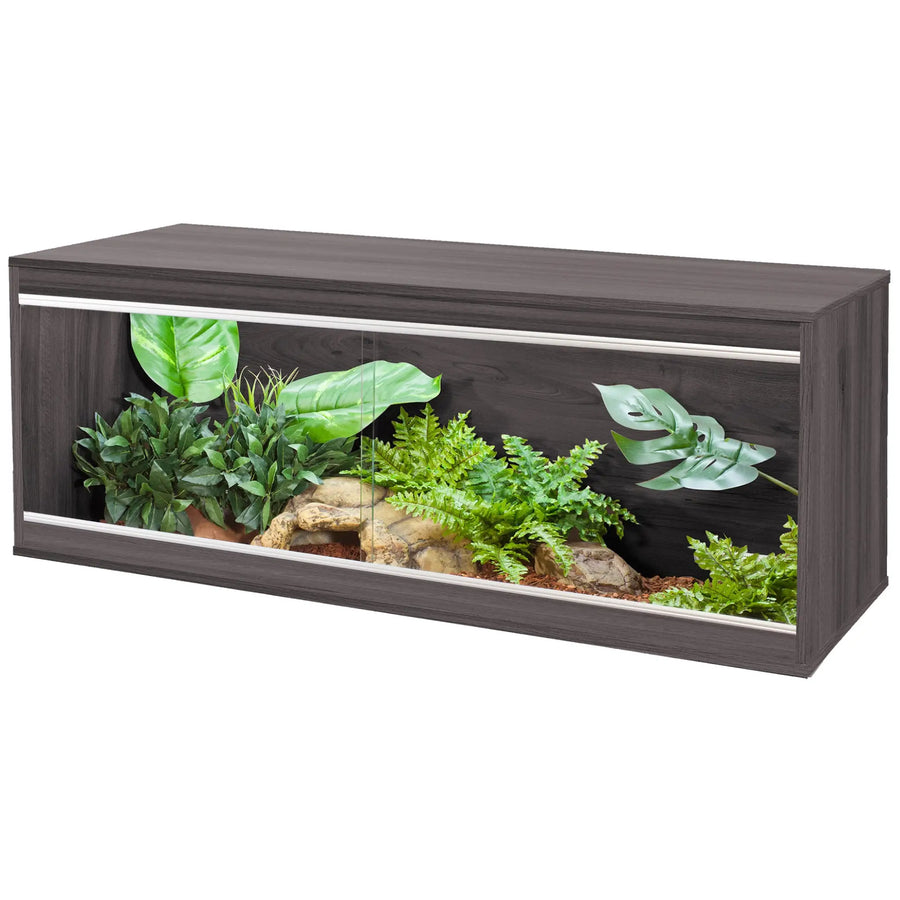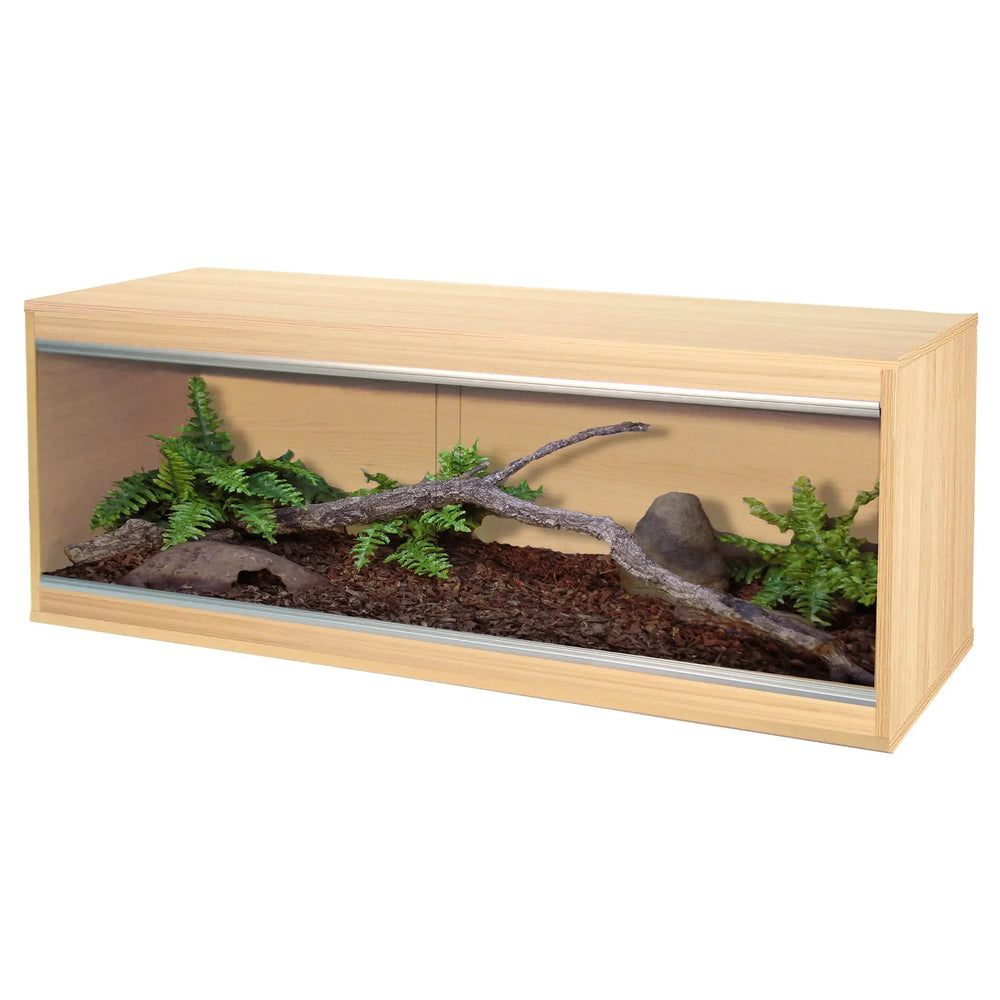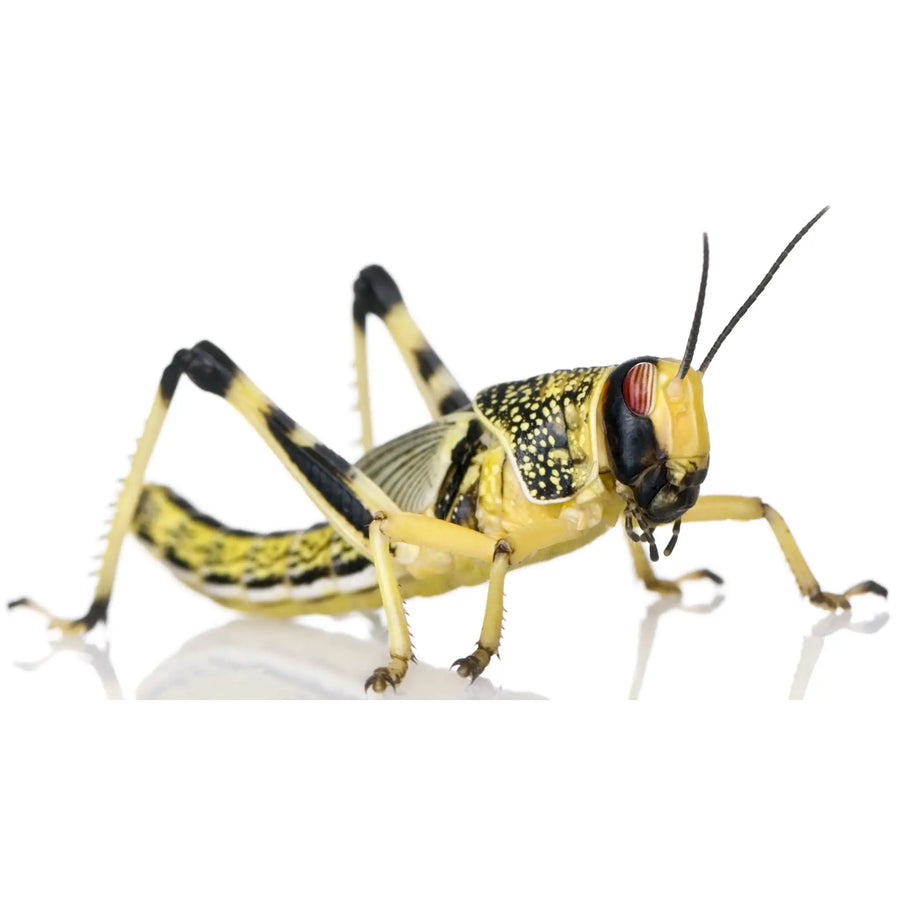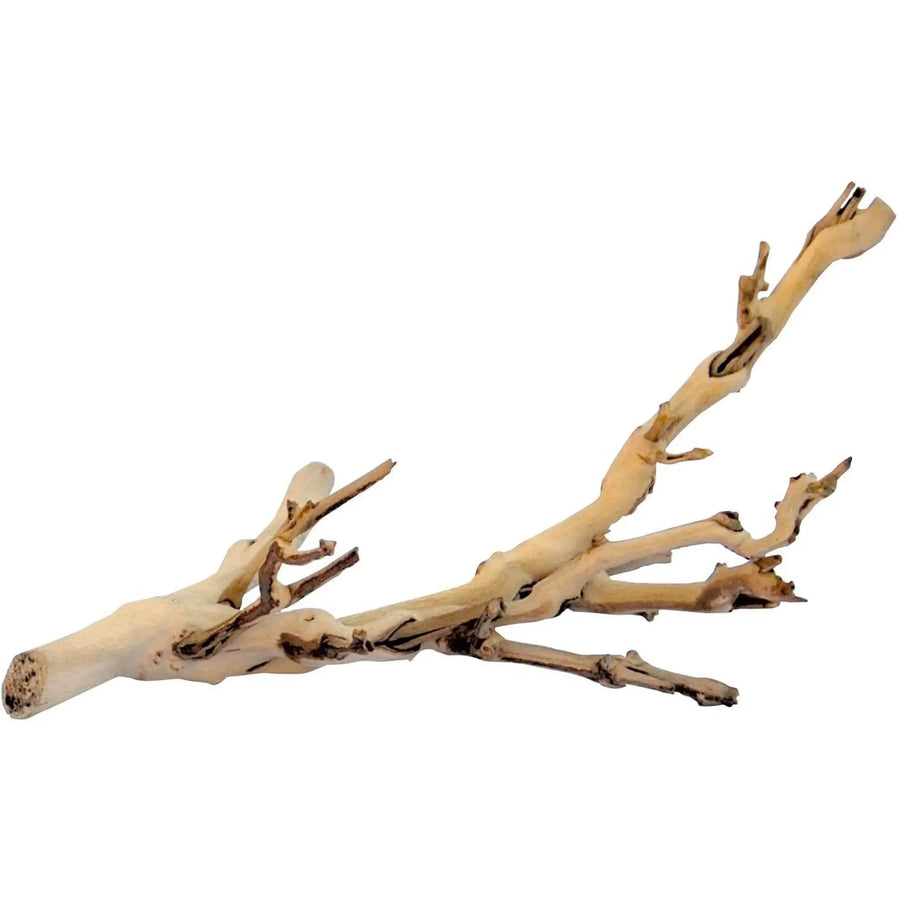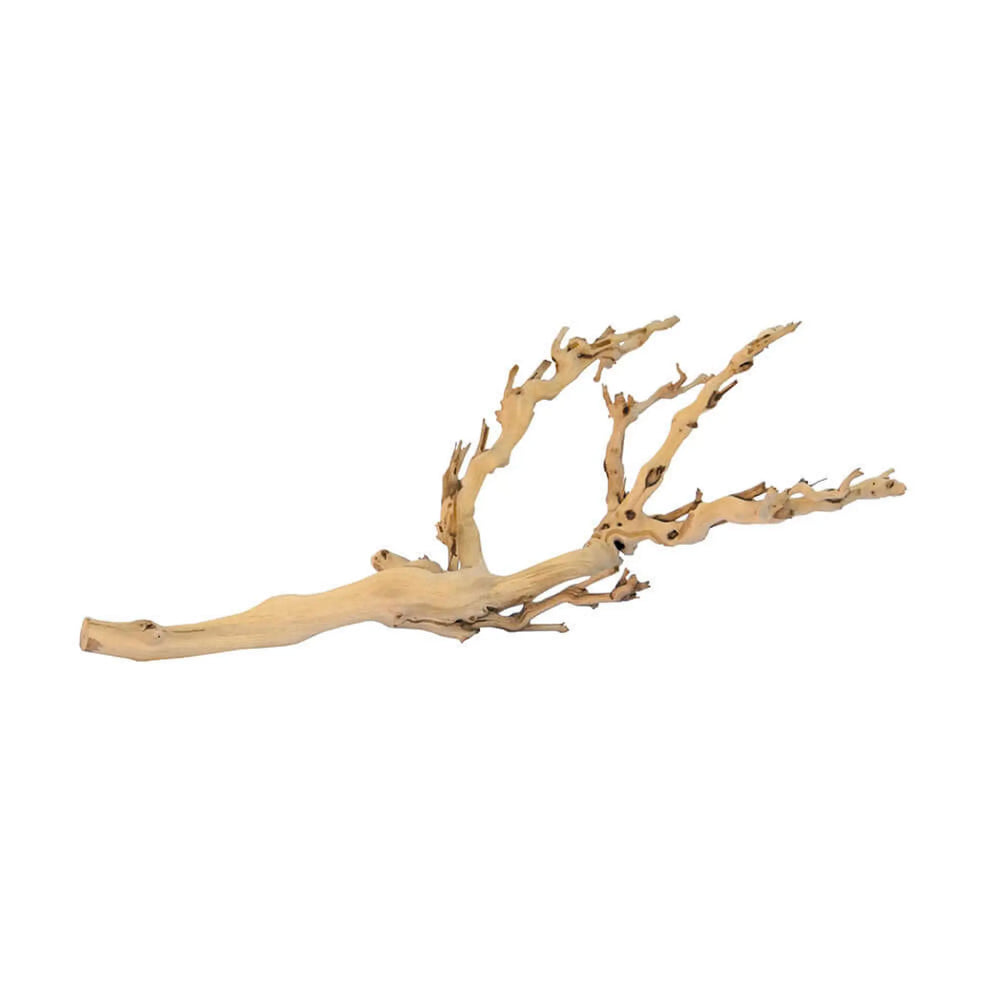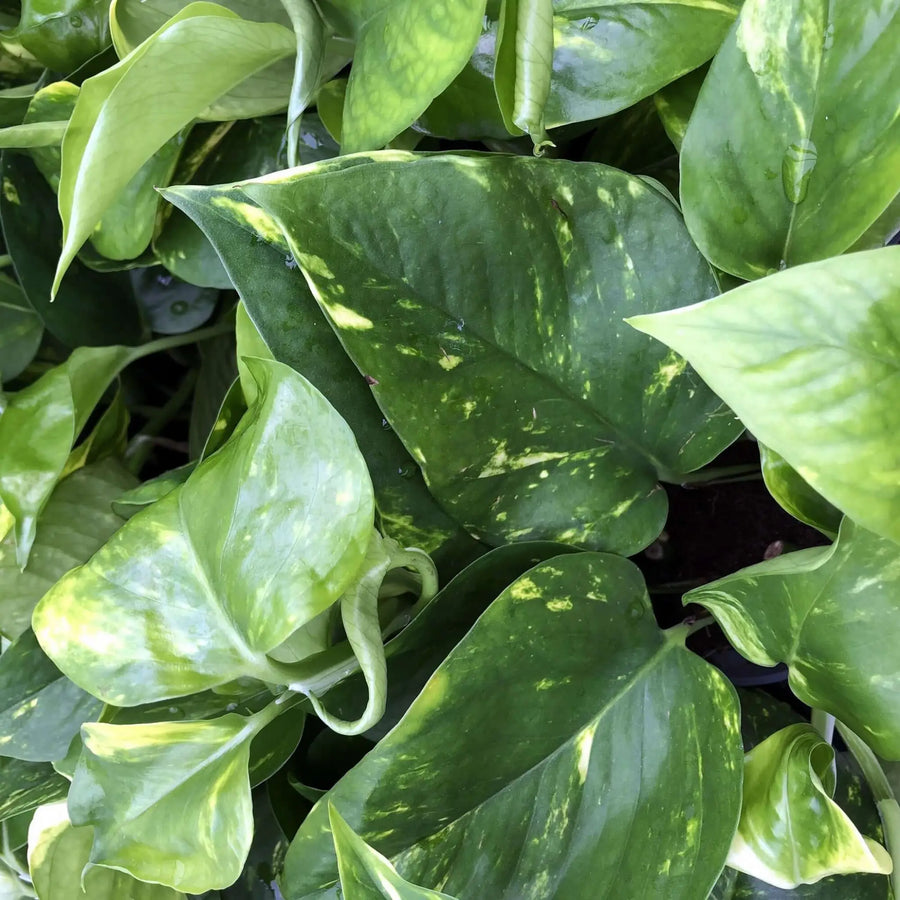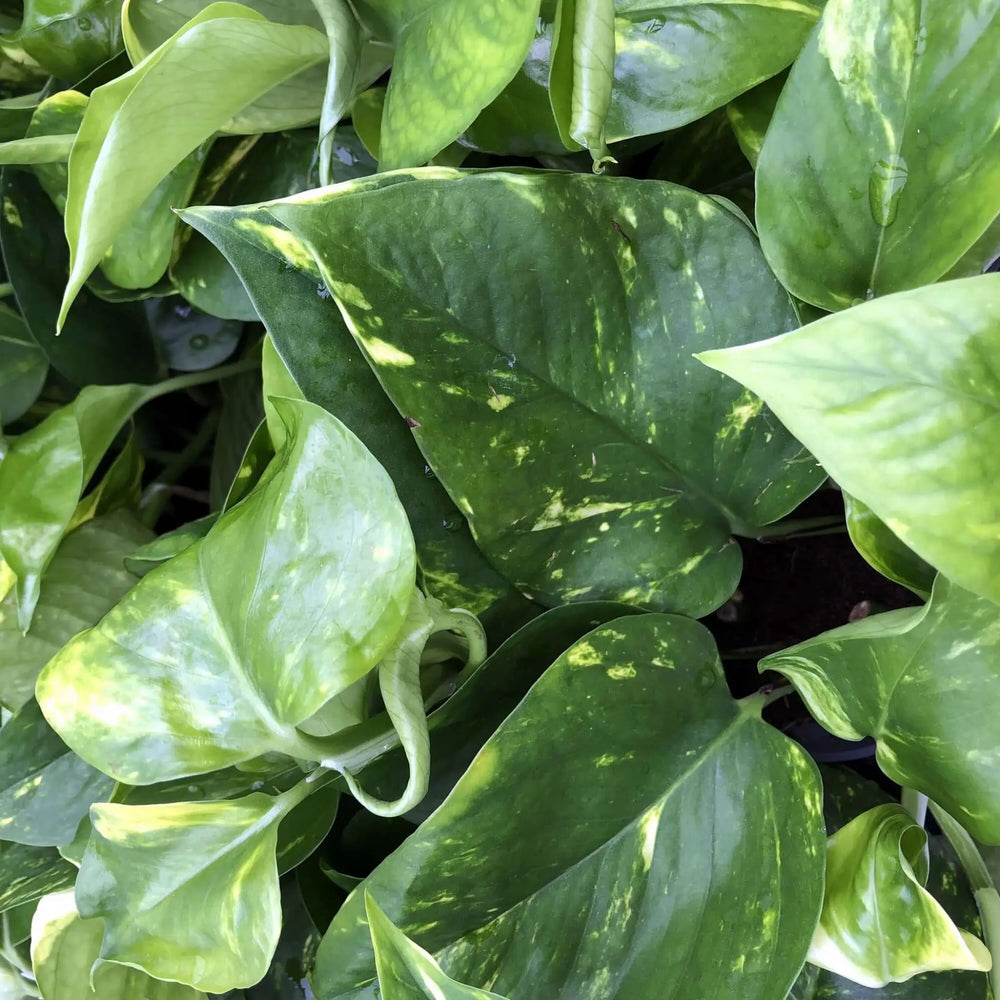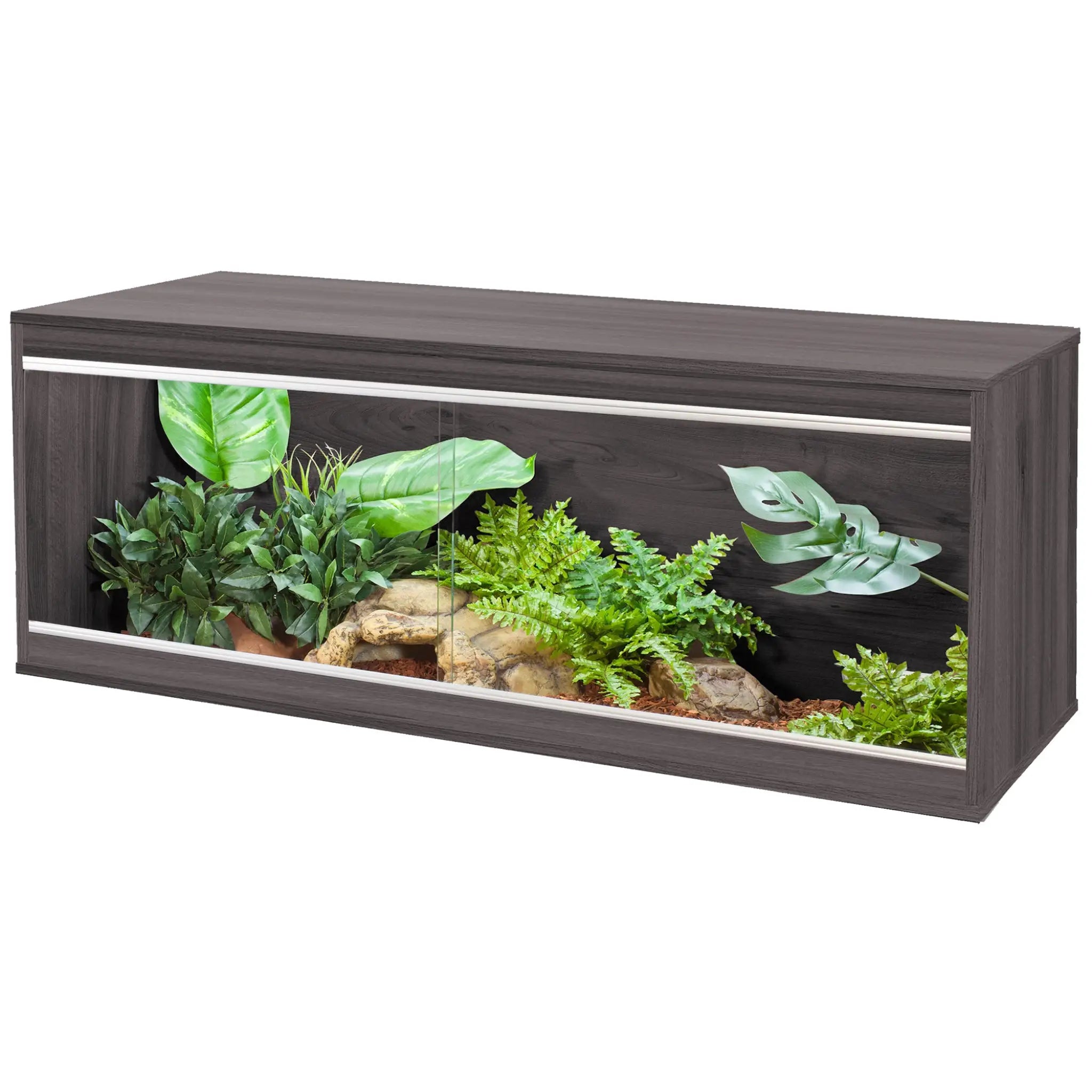
What Do Geckos Eat? Comprehensive Diet Guide
by Luke Tansley on in Geckos
Geckos are fascinating creatures with a diverse and often surprising diet. Whether you have a pet gecko or are simply curious, understanding what they eat is key to their care. Geckos primarily eat insects, with their diet consisting mainly of crickets and locusts. These provide essential nutrients and are readily available in our store.
When caring for a gecko, offering a variety of insects can help ensure they get all the vitamins and minerals they need, especially if they are gut loaded or dusted. For species like the crested gecko, adding fruit to their diet provides additional nutrients and variety.
It's important to avoid feeding geckos certain insects, like lightning bugs, which are toxic to them. Always make sure their food is safe and appropriate for their species.
Dietary Preferences of Geckos
In the wild, geckos have a varied diet that can include insects, small reptiles and fruit. The precise diet varies depending on the gecko species and their natural habitat. This ensures they receive a balanced intake of nutrients for healthy growth and development.
Common Insects and Arthropods
Most geckos, such as African fat-tailed geckos and leopard geckos, are insectivores, meaning they primarily eat insects. Common choices for a gecko's diet include crickets, mealworms and dubia roaches. These insects are rich in protein and essential nutrients.
Crickets are often the main part of a gecko's diet because they're easy to find and high in nutrition. Mealworms are another popular option but should be fed in moderation due to their higher fat content. Dubia roaches are excellent due to their low chitin content, making them easy to digest. They are also rich in protein and calcium, which is important for the gecko’s development.
Fruits and Nectar
While most geckos prefer insects, some species like crested geckos and day geckos enjoy fruits and nectar. These geckos are classified as frugivorous. They tend to eat fruits like mangoes, peaches and papayas. These fruits provide essential vitamins and hydration.
Crested geckos can also consume commercially prepared fruit mixes. Fresh fruit can be offered in small, manageable pieces to prevent choking and ensure easy consumption.
Insectivorous geckos, such as a leopard gecko, should not eat fruit or vegetables. They can’t digest plant matter and this could cause severe health issues.
Some keepers also provide nectar or fruit-based diets for variety. It's important to ensure fruits are pesticide-free and cut into appropriate sizes. These dietary habits mimic their natural behaviour, ensuring they get a balanced diet.
Feeding Habits and Strategies

Geckos have specific feeding habits that are important for their health and wellbeing. They use their instincts and senses to hunt, require a regular feeding schedule and primarily hunt at night. This is dependent on their species, as some geckos are crepuscular and others are nocturnal.
Hunting Techniques
Geckos are skilled hunters. They mainly eat insects like crickets and mealworms. They rely on their keen eyesight to spot their prey. When a gecko sees a moving insect, it will exercise patience until it's close enough to strike.
Most geckos use their sticky tongues to grab and hold onto their prey. This method is quick and effective. Another strategy is stalking, where they slowly approach their target before making the catch.
Smaller geckos may prefer tiny prey like fruit flies, while larger geckos can handle bigger insects like dubia roaches and mealworms. It's essential to match the prey size to the gecko's size to prevent choking or difficulties in eating.
Frequency of Feeding
Feeding frequency varies based on the gecko's age and species. Young geckos need food every day. They are growing quickly, so they need more nutrients. As they mature, you can reduce the frequency to every other day, but as always it’s quite species-specific.
For adults, feeding them daily or every other day (if supplemented with another diet) is usually enough. Ensure they have a varied diet, including crickets, dubia roaches and mealworms, to keep them healthy and active.
Gut loading their prey before feeding is crucial. This means giving the insects nutritious food like fruits and leafy greens for 24 hours before offering them to your gecko. This helps provide the gecko with necessary vitamins and minerals.
It's also important to dust insects with a calcium supplement powder, especially for growing baby geckos and egg-laying females. This helps prevent calcium deficiency and other health issues.
Nocturnal Feeding Patterns
Most geckos are crepuscular or nocturnal, which means they are most active and hunt at night. This behaviour is rooted in their natural habitat, where they avoid daytime predators. Therefore, the best time to feed your gecko is in the afternoon or in the evening.
Provide live prey during these hours to stimulate their natural hunting instincts. You might notice your gecko becoming more alert and active during feeding time. If your gecko does not eat all the offered insects, remove any leftovers to avoid spoilage and keep the tank clean.
Using a shallow dish can help contain the insects and make it easier for your gecko to catch them. Always ensure fresh water is available, and check the tank regularly to maintain a healthy environment for your pet gecko.
Nutritional Requirements
Geckos have specific nutritional needs that must be met to keep them healthy. These include essential vitamins and minerals, as well as a proper hydration plan.
Vitamins and Minerals
Geckos require a diet rich in vitamins and minerals. Calcium is particularly important because it helps maintain strong bones and prevents metabolic bone disease. To ensure your gecko gets enough calcium, you can dust insects with a calcium powder before feeding them to your gecko.
Vitamin D3 is also crucial as it helps in calcium absorption. This can be provided through a low-level UVB bulb in their habitat.
In addition to calcium and vitamin D3, geckos need other vitamins like A and E. Supplement powders that include these vitamins can be sprinkled on food items to ensure a balanced intake. It's important to avoid feeding your gecko insects you’ve caught yourself, as they may carry parasites.
Hydration and Water Intake
Proper hydration is essential for geckos’ health. While they get some water from their food, geckos still need a fresh source of water. A shallow dish should be placed in their tank, ensuring that it is clean and filled daily. This helps prevent dehydration and supports overall health.
Another way to keep geckos hydrated is through misting their tank lightly. This increases the humidity briefly, which is beneficial, particularly during shedding periods.
Considerations for Captive Geckos

When caring for captive geckos, their diet needs special attention. Using commercial diets and ensuring proper supplementation are crucial for maintaining their health.
Commercial Diets
For your pet gecko, you can choose from a variety of commercial diets available at pet stores. These diets are designed to offer balanced nutrition. Some popular commercial foods for geckos include pre-mixed powders and dried insects.
Crested geckos especially can thrive on these powdered diets which can be mixed with water. In comparison, leopard geckos eat fresh, live prey and should never be fed dried insects or powders. They can cause dehydration and other issues.
Live insects such as crickets, mealworms and dubia roaches are commonly offered as well. Additionally, occasional treats like waxworms or calciworms can be provided, but these should not replace the main diet. It’s important to ensure that the insects you feed your gecko are appropriately sized to prevent choking or injury.
A gecko’s diet must be varied to ensure they receive all the nutrients they need. While commercial diets simplify feeding, it’s essential to avoid over-reliance on any single food type.
Supplements and Gut-Loading
Calcium and vitamins are crucial for gecko health. In captivity, they might not get enough of these nutrients from their diet alone. Calcium powder can be dusted on insects before feeding. This helps prevent metabolic bone disease, a common issue in captive geckos.
Gut-loading involves feeding your gecko's live prey nutrient-rich foods before offering them to the gecko. This ensures that the insects are packed with vitamins and minerals that the gecko will then consume. Common gut-loading insect foods include leafy greens, carrots and commercial gut-loading formulas.
Ensure you follow a regular supplementation schedule. Juvenile geckos might need calcium powder at every feeding, while adult geckos may only need it a few times a week. Avoid feeding wild caught insects since they may carry pesticides or parasites that could harm your gecko.
Want a Pet Gecko? Contact Reptile Centre Today

Thinking about getting a pet gecko? Reptile Centre is a great place to start. We have a range of geckos available, from baby geckos to adult geckos. Each gecko species has its own unique care needs, and our experts at Reptile Centre can guide you through every step.
From housing and heating to the gecko food, we can help you set up the perfect new home for your pet gecko. Contact us today at sales@reptilecentre.com or 01604 753823.

